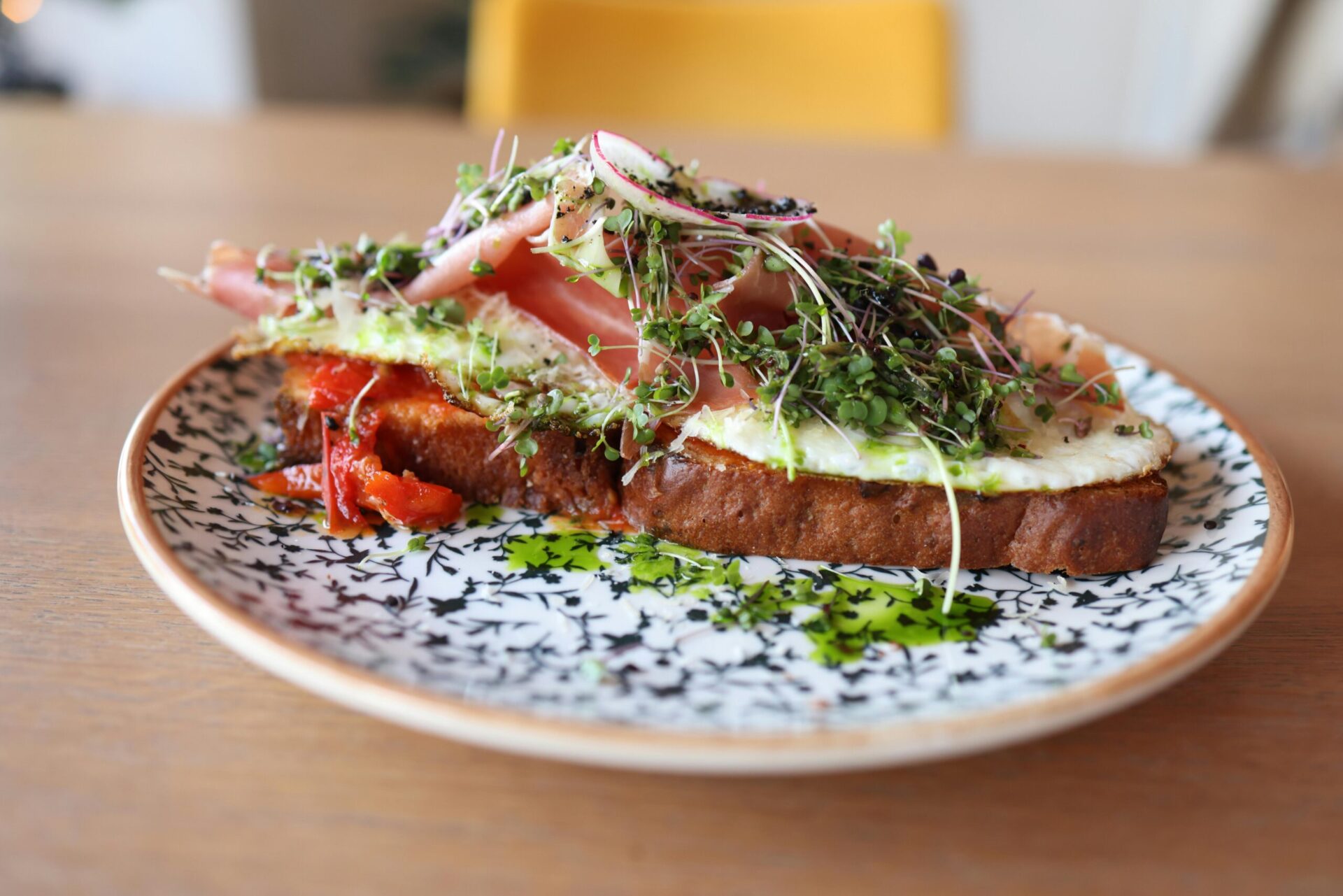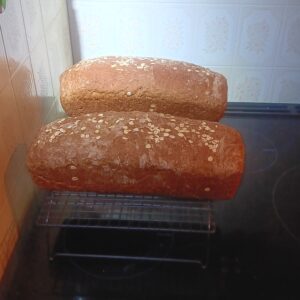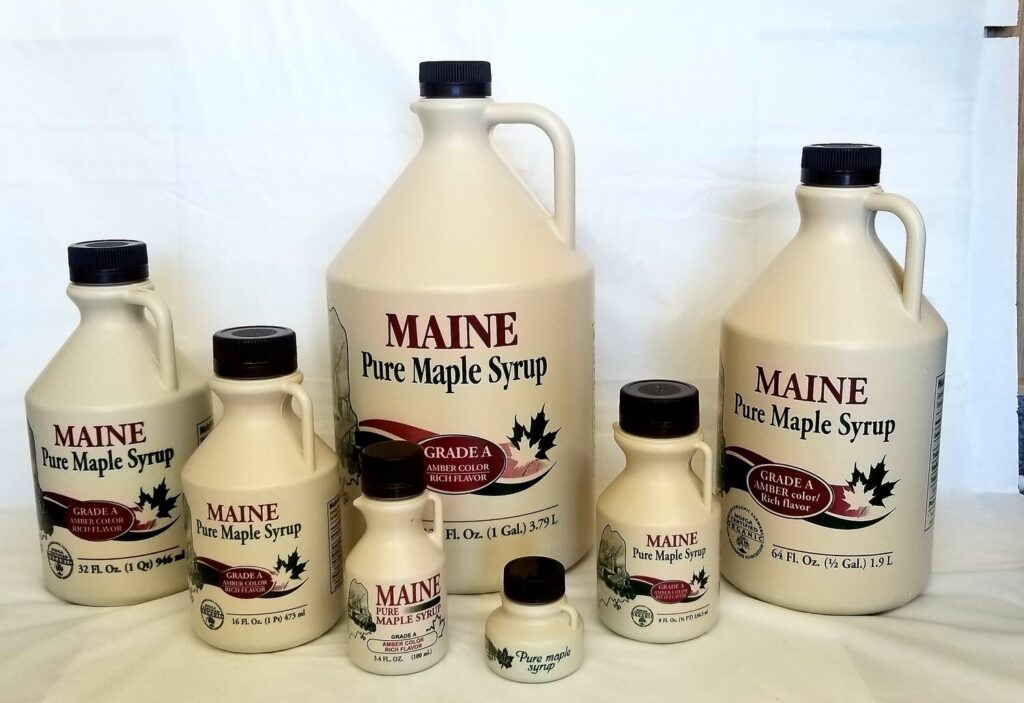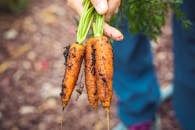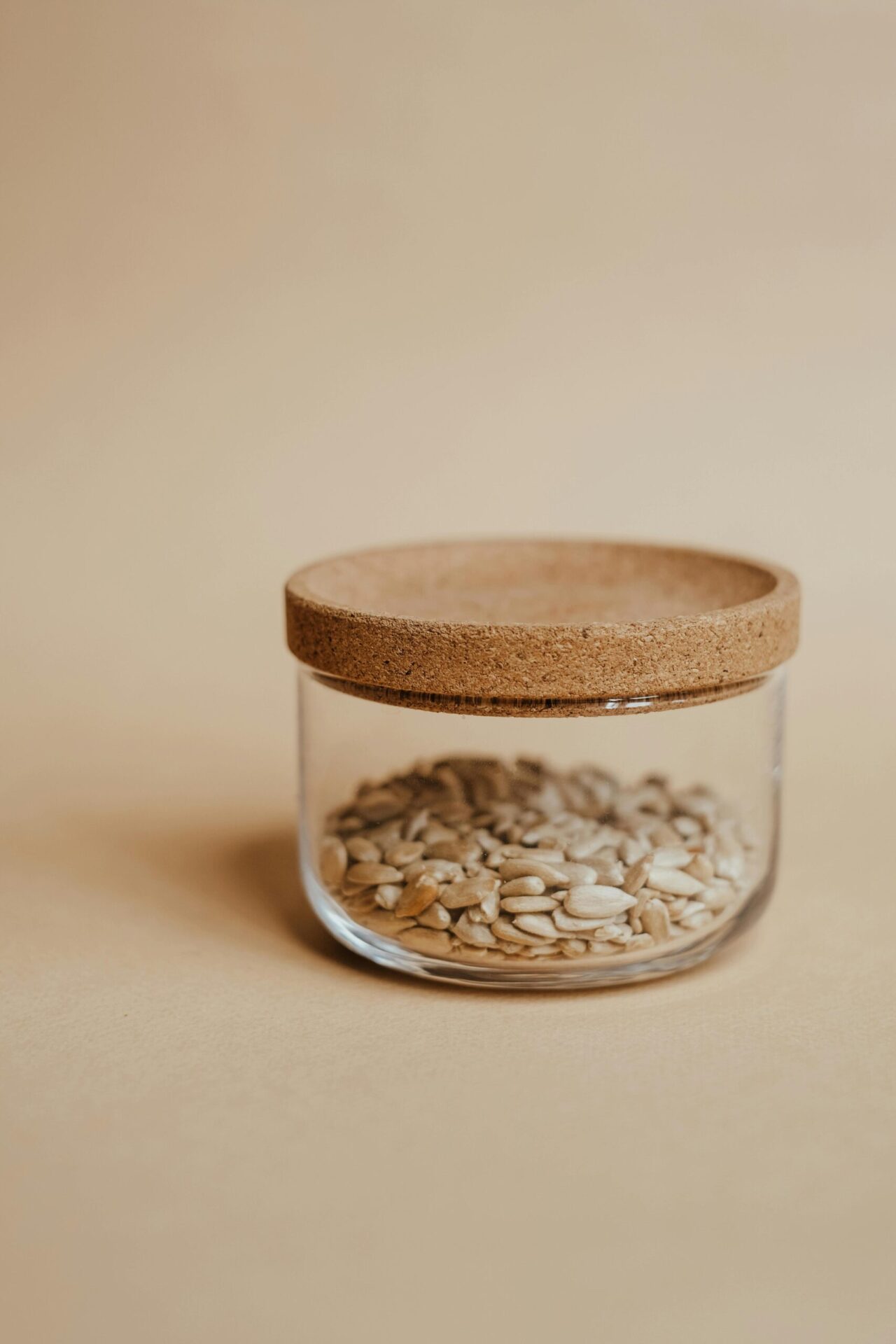Your cart is currently empty!
Tag: non-gmo

Oatmeal Molasses Bread
Baking your own oatmeal molasses bread is a delightful and rewarding experience, offering several benefits:
- Control Over Ingredients: You can choose high-quality, organic ingredients, avoid preservatives, and adjust the recipe to suit dietary preferences or restrictions.
- Freshness: There’s nothing quite like the taste and aroma of freshly baked bread. Home-baked bread is free from the additives and preservatives found in store-bought versions.
- Nutritional Value: Homemade bread can be more nutritious. Oatmeal is rich in fiber and essential nutrients, while molasses adds iron, calcium, and magnesium.
- Customization: You can experiment with different flours, add nuts, seeds, or dried fruits, and adjust the sweetness or texture to your liking.
- Cost-Effective: Baking at home can be more economical in the long run, especially if you bake regularly.
- Therapeutic Activity: Baking can be a relaxing and enjoyable activity, offering a sense of accomplishment and creativity.
And hey, it’s a wonderful way to fill your home with the comforting, inviting scent of freshly baked bread.

Oatmeal Molasses Bread
Simple oatmeal and molasses bread.Equipment
- 2 Large Bowls one for mixing and one for letting the dough rise in
- 2 Loaf Pans 2 large loaf pans(13X5) or 3 smaller ones (9X5)
Ingredients
- 4 Cups Water Boil
- 2 Cups Quick or cut oats
- 3/4 tsp Cinnamin opt
- 1/4 Cup Sugar
- 3 tbsp coconut oil Can substitute
- 3 tsp Salt
- 1 Tbsp Flax Seed
- 1 Cup Molasses Can cut with maple syrup if using less sugar
- 8-9 Cups Bread Flour Organic non-bleached
- 2 1/8 tsp dry yeast
Instructions
- Add oats, cinnamon, sugar, oil, salt, flax seed, molasses and or maple syrup in a large bowl.
- Bring 4 cups of water to a full boil and add to dry ingredients. Mix well.
- Allow mixture to cool to 109-115, (no higher) before adding yeast.
- After yeast is well mixed in, add flour and kneed for 5 to 10 minutes creating a soft ball. Put dough in large slightly oiled bowl and allow to rise for 90 minutes.Keep warm 98-105F or place in bread proofer. Dough should almost double in size.
- After 90 minutes, take dough out of the proofer and spread out on a board roughly the length of the pans. Split in two halves, (or thirds) and place into pans lined with parchment paper.
- Place bread pans in a warm place and once again allow it to rise. 60 minutes.
- After the bread has risen, put a small amount of whole oats on the top of the loaves and gently press in.
- Preheat oven to 350 degrees, once up to temperature bake for 46 minutes or until the center of the loaf is 200F.
- Take bread out of the pans and place on a wire rack and allow to cool.
- ~ENJOY~

Maple Syrup
100% locally sourced and harvested maple syrup. Tasty dark
$12.00 – $22.00
Why Heirloom Seeds Are Important
why are heritage seeds important?

Heritage seeds, also known as heirloom seeds, play a crucial role in preserving agricultural biodiversity and cultural heritage. Here are some key reasons why they are important:
- Genetic Diversity: Heritage seeds maintain a wide range of genetic traits, which can help crops resist diseases, pests, and adverse environmental conditions. This diversity is essential for the resilience of our food supply.
- Cultural Heritage: These seeds are often passed down through generations, preserving traditional varieties that have historical and cultural significance. Growing heritage crops helps maintain the connection to our agricultural past.
- Flavor and Nutrition: Heirloom varieties are often prized for their superior flavor, texture, and nutritional value compared to many modern hybrids. They offer unique and diverse tastes that are often lost in commercially grown produce.
- Sustainability: Heritage seeds are typically open-pollinated, meaning they can be saved and replanted year after year. This practice promotes sustainable farming and reduces the dependence on commercial seed companies.
- Environmental Benefits: Many heirloom varieties are well-adapted to local growing conditions, requiring fewer chemical inputs like pesticides and fertilizers. This can lead to more environmentally friendly farming practices.
Preserving and growing heritage seeds is a meaningful way to support biodiversity, sustainability, and cultural heritage in our food systems. 🌱
Non-GMO Verses GMO
Growing non-GMO (non-genetically modified organism) plants is a great choice for many reasons. Here are a few benefits:
- Natural Selection: Non-GMO plants are naturally bred, which means they maintain the genetic diversity that is crucial for resilience against diseases and environmental changes.
- Health and Safety: Some people prefer non-GMO products because they want to avoid the potential health risks associated with genetically modified foods. While there is ongoing debate about the safety of GMOs, choosing non-GMO can be a way to minimize exposure to anything you’re unsure about.
- Environmental Impact: Non-GMO farming often involves more sustainable practices. Many GMO crops are engineered to withstand certain herbicides, which can lead to increased herbicide use and potential environmental harm.
- Biodiversity Preservation: By growing non-GMO plants, you’re helping to preserve the genetic heritage of crops. This is essential for maintaining a wide variety of plants that can adapt to different growing conditions and climates.
If you’re looking to start a non-GMO garden, make sure to look for seeds labeled as “non-GMO” or “heirloom.” These will ensure that you’re growing plants that haven’t been genetically modified. Happy gardening! 🌼🌽
Where to Find Non-GMO Seeds
Here are some reputable websites that specialize in non-GMO, organic, and heirloom seeds:
- Seed Savers Exchange: A non-profit organization dedicated to preserving heirloom seeds. They offer a wide variety of non-GMO seeds and have a strong focus on heritage varieties.
- Johnny’s Selected Seeds: Known for their organic seeds and plants, Johnny’s has been farming organically since 1979 and is a signer of the Safe Seed Pledge.
- Baker Creek Heirloom Seeds: They offer a large selection of heirloom seeds and are committed to non-GMO seed production.
- Botanical Interests: This company provides a variety of organic, non-GMO seeds and plants, including heirloom varieties.
- Peaceful Valley Farm & Garden Supply: They offer a range of organic and non-GMO seeds and gardening supplies.
These companies are committed to sustainable and socially responsible practices, ensuring you get high-quality, non-GMO seeds for your garden. Happy planting! 🌱
